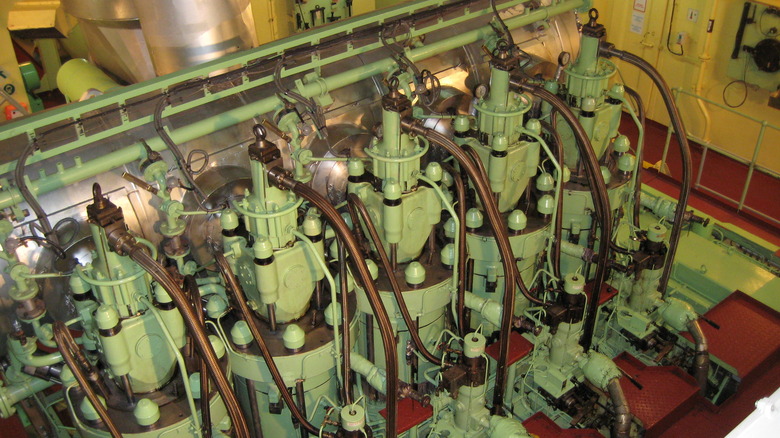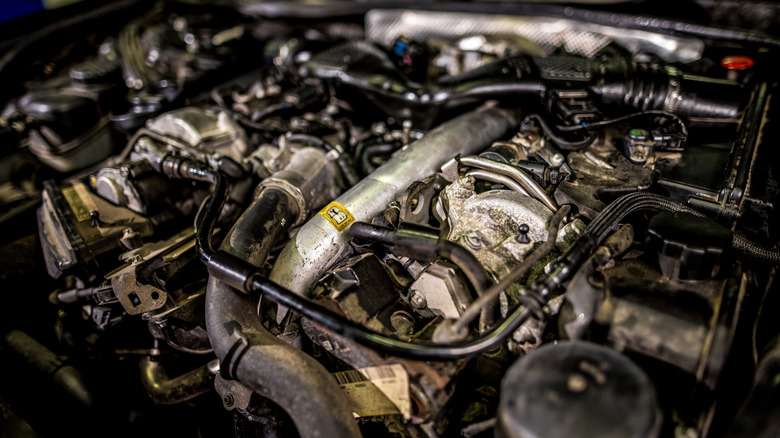Thermal Efficiency Of Diesel Engines Explained: Why It's Important
Diesel engines have been around since the late 19th century, which was around the time Karl Benz built the world's first automobile. Diesel engines have higher compression ratios than gas engines and typically produce more torque. Regardless of fuel type, all engines lose some of that fuel's energy as ambient or exhaust heat. The amount of potential fuel energy that's actually converted to motion is called an engine's thermal efficiency.
The thermal efficiency of diesel engines has typically maxed out at around 46%, while gas engines only effectively use 30-36% of the energy available. This difference can be credited to the higher compression ratios and leaner mixtures used in diesel engines.
Weichai Power in Weifang, China recently spent a year and a half developing a more thermally efficient diesel engine and introduced it to the world at the recent World Congress on Internal Combustion Engines in Tianjin. That engine had a thermal efficiency of more than 53%, a fourth such world record for Weichai.
[Featured image by Xtrememachineuk via Wikimedia Commons|Cropped and scaled|Public Domain]
Better thermal efficiency means reduced emissions and fuel consumption
Weichai spent more than a year and a half developing its new engine, accumulating more than 200 fresh patents in the process. Its claimed thermal efficiency figure of 53.09% was verified by a German engineering consulting firm and the China Automotive Technology and Research Center (CATARC). The company claims the increase in thermal efficiency from the current standard will reduce worldwide emissions by more than 100 million tons and cut fuel use by almost 30 million tons. This represents a 14% improvement, which is roughly the same as the increase in thermal efficiency from 46% to 53.09%.
Owners of existing diesel (and gas) engines can do their part to maximize thermal efficiency by keeping their engines tuned, maintained, and lubricated properly. Doing so will reduce global fossil fuel use and reduce air pollution, which has been found to reduce human cognitive ability. Engine manufacturers like Weichai are working to increase the thermal efficiency of diesel and gas engines by reducing internal friction, optimizing fuel injection systems, and increasing the amount of energy produced by each combustion cycle.

